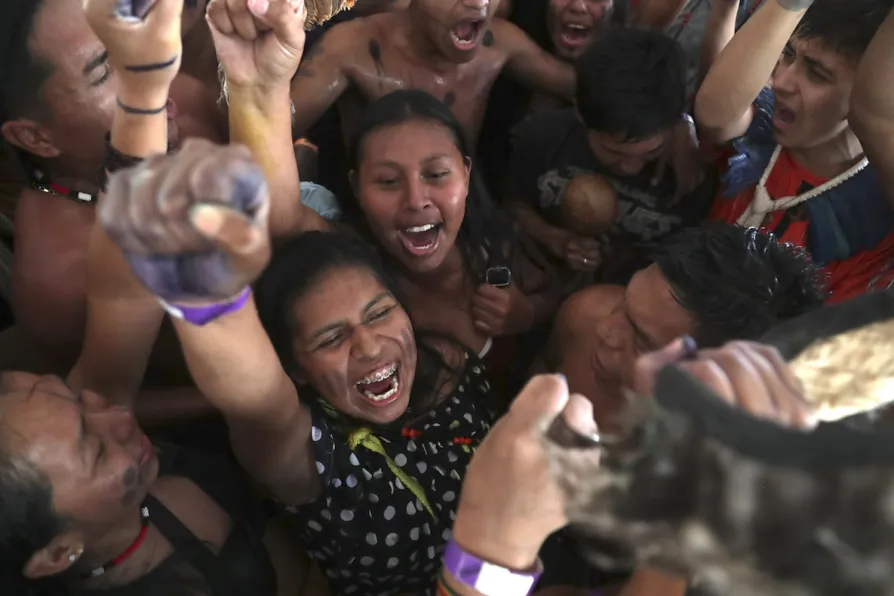Brazil's supreme court rules in favour of Indigenous land rights

 Indigenous people celebrate a Supreme Court ruling to enshrine Indigenous land rights, in Brasilia, Brazil, Thursday, Sept. 21, 2023.
Indigenous people celebrate a Supreme Court ruling to enshrine Indigenous land rights, in Brasilia, Brazil, Thursday, Sept. 21, 2023.
INDIGENOUS people in Brazil were celebrating this week after the Supreme Court rejected a lawsuit to restrict native people’s rights to reservations on their ancestral lands.
The justices had been evaluating a lawsuit brought by Santa Catarina state, backed by farmers, seeking to block an Indigenous group from expanding the size of its territorial claim.
Nine out of 11 of the high court’s justices voted to support the Xokleng on Thursday.
More from this author

Meanwhile, Campaigners raise contempt of court complaint against Home Secretary Yvette Cooper over claims Palestine Action was proscribed due to violence against people

















